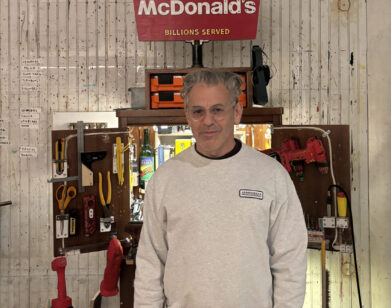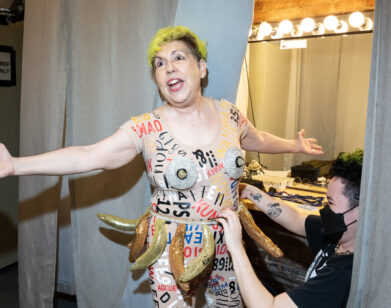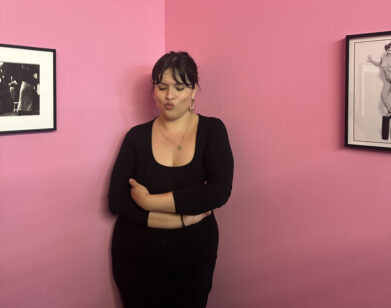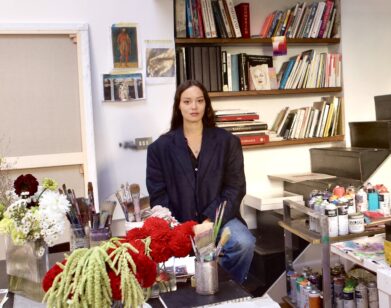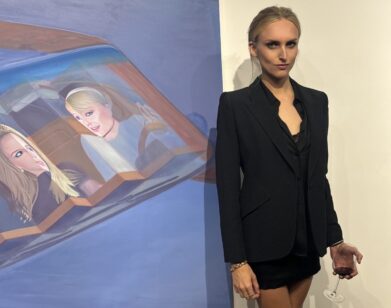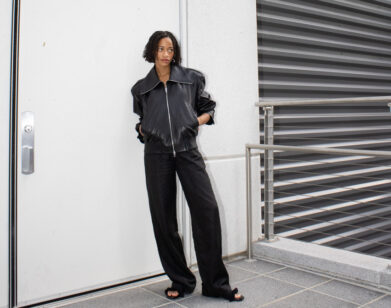LaToya Ruby Frazier
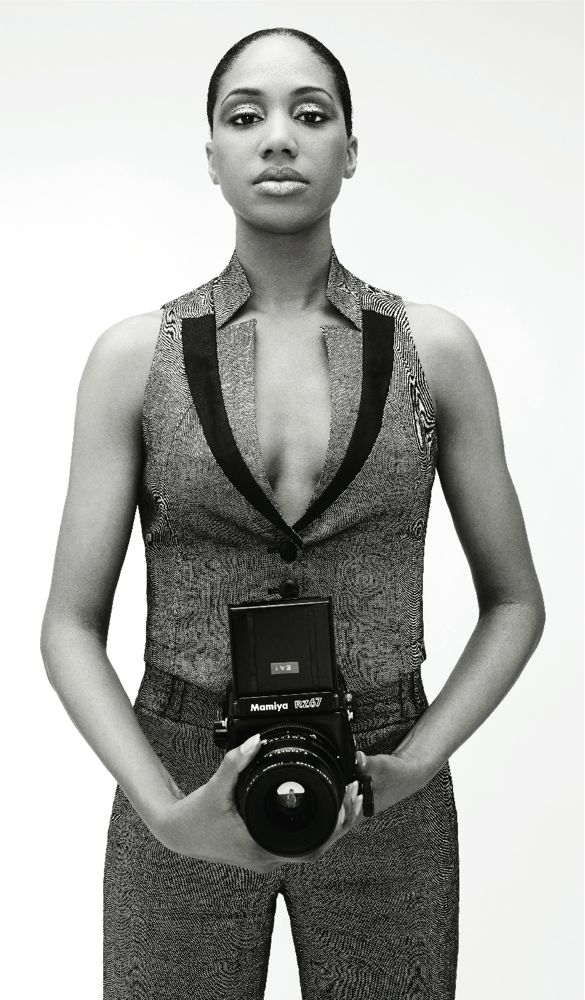
Since she was 17, LaToya Ruby Frazier has been taking black-and-white photographs of her family and hometown of Braddock, Pennsylvania. Her camera techniques are decidedly old school, and the formal beauty of her images evokes Diane Arbus: gray skies blend into empty streets; a still life of personal effects on a bedside table could date from the 1970s; a boxy sedan on a lawn looks like a 20th-century relic.
Yet it is Frazier’s second turn as a performance artist that brings the post-industrial decay of Braddock, a former steel town, into a relentless present. In 2010, Levi’s featured the town prominently in an ad campaign, calling it “the new frontier.” In response, Frazier performed in front of a pop-up Levi’s photo gallery in SoHo with artist Liz Magic Laser, rubbing her body on the concrete sidewalk to wear out a pair of jeans as a critique of Levi’s commodification of working-class America. “When I asked my elders about denim, they expressed how it was frowned upon to wear denim outside of work,” Frazier remembers. “In fact, my great-step-grandfather, Gramps, never wore denim. He was one of the few African-American men who worked in Andrew Carnegie’s steel mill. Gramps only wore suits. I will never forget watching him suffer from chronic arthritis and multiple other ailments that he developed while working in the steel mills . . . It came natural for me to tear a pair of Levi’s jeans as a political gesture and testament for the men and women whose views counter such a fictitious, superficial, propagandized ad campaign.”
The 30-year-old Frazier continues her critique of the Levi’s Braddock ads by mixing their imagery and messages along with her own—and incorporating questions from community residents—for the 12-piece photo series she will show at the Biennial, entitled Campaign for Braddock Hospital (Save Our Community Hospital) (2011). “My main focuses are lack of healthcare and corporate exploitation,” Frazier says of these works.
In repurposing advertising’s images and phrases for political critique, Frazier’s work continues in the subversive tradition of artists like Barbara Kruger, Jenny Holzer, and Martha Rosler. And although Braddock is overwhelmingly the subject and setting, Frazier’s work could also be seen as self-portraiture. Also on view will be her Homebody Series (2010), black-and-white photographs in which Frazier haunts her abandoned family home wearing “Gramps’ pajamas” and “Grandma Ruby’s velour bottoms.”
ABOVE: LATOYA RUBIE FRAZIER IN NEW YORK, JANUARY 2012. ALL CLOTHING FRAZIER’S OWN. SPECIAL THANKS TO FAST ASHLEYS.

